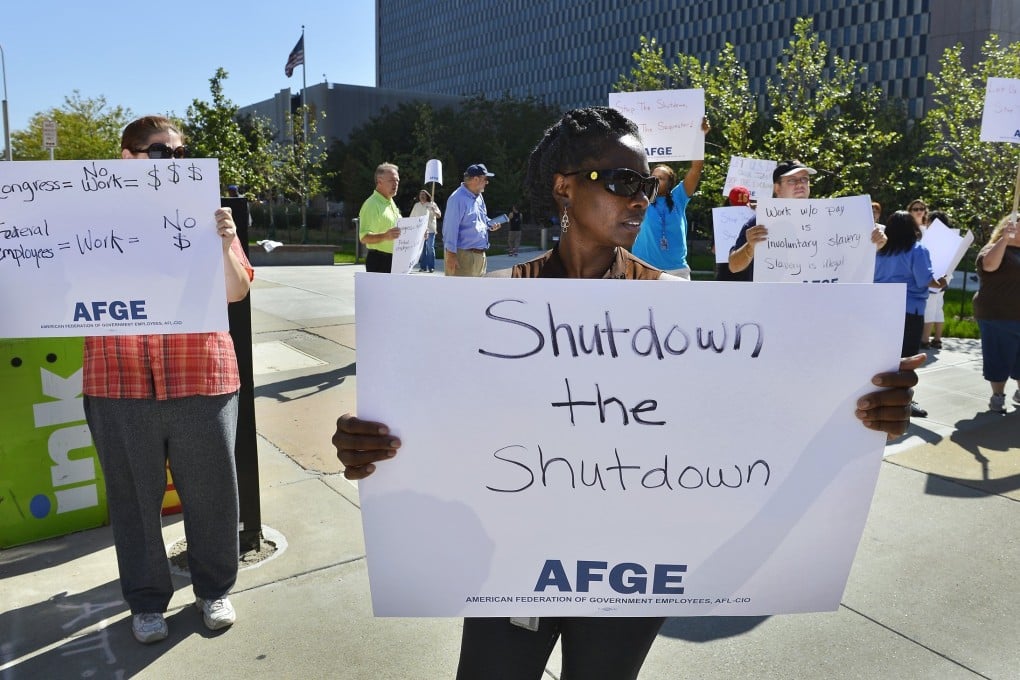What does the US government shutdown mean for the global economy?
The US dollar is down, and a prolonged crisis could damage consumer spending, confidence and China’s attitude to US debt

How have financial markets reacted to news of the shutdown?
After declining seven out of the past eight sessions on concerns about a possible shutdown, Wall Street rebounded on Tuesday as investors viewed the pullback as a buying opportunity in the absence of an extended shutdown.
The Dow Jones industrial average rose 62.03 points, or 0.41 per cent, to close at 15,191.70. The Standard & Poor’s 500 Index rose 13.45 points, or 0.8 per cent, to close at 1,695. The Nasdaq Composite Index rose 46.50 points, or 1.23 per cent, to close at 3,817.98.
Some analysts said investors may also be reasoning that the crisis could delay the so-called “tapering” of the US Federal Reserve’s recession-busting policy of quantitative easing, which helps inflate share prices by pumping cheap money into financial markets.
Ilya Spivak, currency strategist at Daily FX, said: “The somewhat counterintuitive response seems to reflect investors’ continued preoccupation with the direction of US monetary policy. Filtered through this prism, the shutdown and its negative implications for US growth are seen as delaying a move to ‘taper’ QE asset purchases, which seems to be driving a swell in risk appetite.”
So does that mean it’s just a little local difficulty for the Americans?
